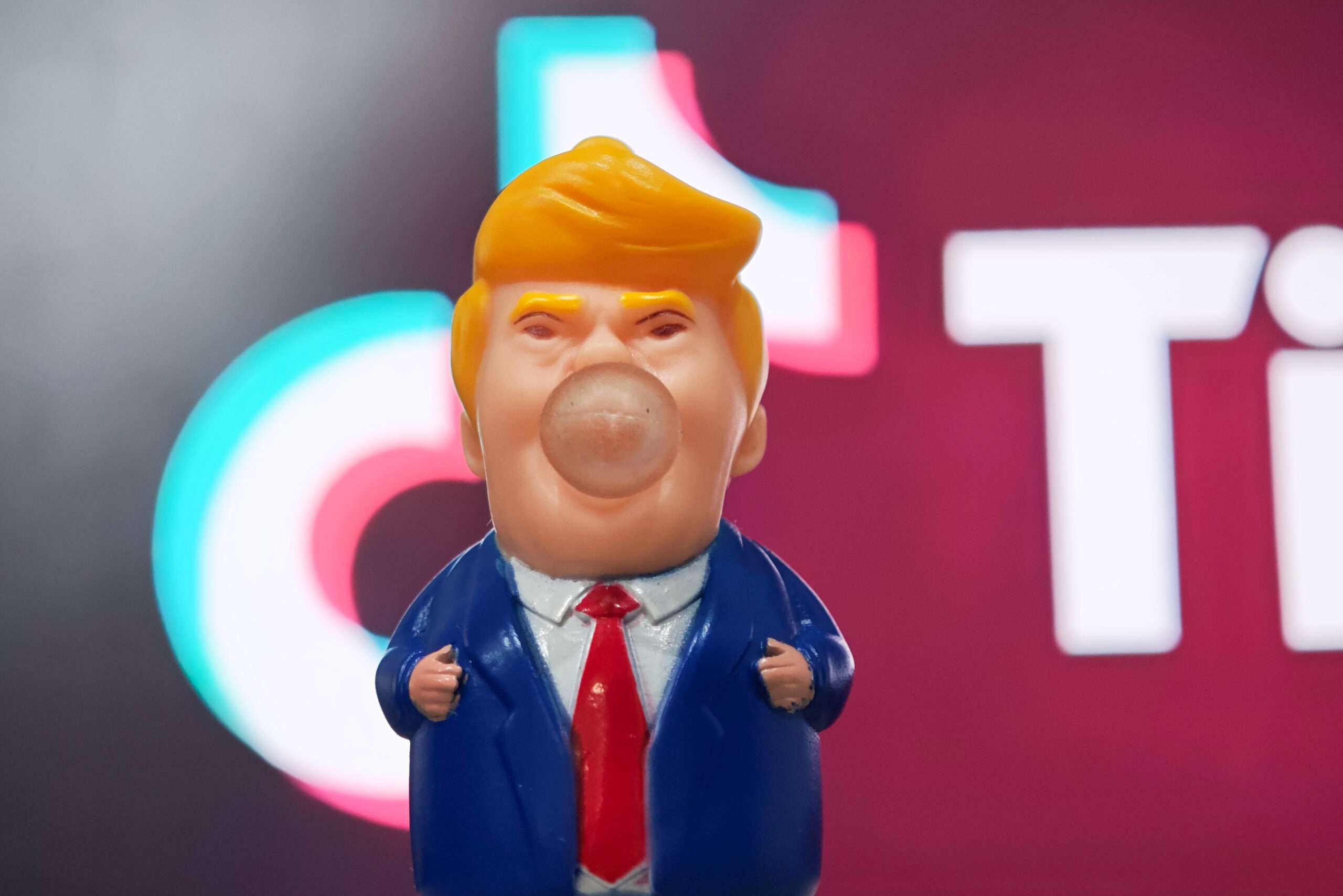By Elizabeth Nolan Brown
Copyright reason

TikTok is here to stay…sort of. After months of extending the deadline by which ByteDance would be required to sell off U.S. operations of TikTok or be banned, President Donald Trump seems to have finally struck a deal for it to be purchased by American investors. But the deal may leave American TikTok users cut off from the rest of the world.
On Tuesday, Trump once again extended the sale-or-ban deadline, this time until December 16. But he also announced this week that “a deal with China” was now in place. “President Trump and Party Chair Xi will speak on Friday to complete the deal,” Treasury Secretary Scott Bessent said on Monday.
Details of this framework are still sketchy. But from what’s been reported, it seems that a group of U.S. investors—including Oracle, Silver Lake, and Andreessen Horowitz—will essentially be launching a spinoff TikTok app for the United States.
“The arrangement, discussed by U.S. and Chinese negotiators in Madrid this week, would create a new U.S. entity to operate the app, with U.S. investors holding a roughly 80% stake and Chinese shareholders owning the rest,” The Wall Street Journal reports. “This new company would also have an American-dominated board with one member designated by the U.S. government.”
(Combating the prospect of Chinese propaganda by giving the the U.S. government partial control of the app? That’s logic only a propagandist could love…)
“Existing users in the U.S. would be asked to shift to a new app, which TikTok has built and is testing,” the Journal reports.
If this happens, it’s unclear how the U.S. TikTok app would interact with the global TikTok app.
Some are worried that U.S. app users would be cut off from the rest of TikTok’s global community, unable to view videos from users in other countries or to share their own videos internationally.
According to the Financial Times, this isn’t what TikTok’s sellers want. A “person familiar with the matter said TikTok had been developing a standalone US app in anticipation of a deal but was keen to ensure that content generated by American users would still be available to users in the ‘rest of the world’ app and vice versa,” it says.
According to Wang Jingtao of the Cyberspace Administration of China, the U.S. buyers will be “licensing the algorithm and other intellectual property rights” from TikTok parent company ByteDance for their new app.
But a deal in which users of a U.S. TikTok app are still fully plugged into the main app, and still reliant on ByteDance’s algorithms, might not satisfy the requirements of the ban-or-divest measure [OK?] signed into law by former President Joe Biden in April 2024. “Analysts have said the algorithm must be fully operated by the US entity to meet the requirements of the divest-or-ban law,” notes the Times. “But the law allows the US president to determine if ByteDance has fully divested from TikTok, giving Trump the power to approve the deal.”
That means it ultimately might not matter whether the terms of this deal meet the requirements set out in the law; if Trump decides he likes the terms, then that’s enough. And Trump has already shown his willingness to ignore the law’s actual dictates by repeatedly extending the sale deadline, despite it possibly being unconstitutional for him to do so.
It would be funny if the ultimate deal ends up letting ByteDance keep control of the algorithm. One of the main stated rationales for the sell-or-ban law was that China could influence and control U.S. users of TikTok through its control of ByteDance (by way of ByteDance having developed TikTok in China). That fits an interpretation of this whole debacle in which the real impetus for the law was more about signaling anti-China sentiment and/or making a show of “protecting children” rather than any real “national security concerns.”
In any event, the precise contours of the algorithm deal are yet unclear. The Journal says “TikTok engineers will re-create a set of content-recommendation algorithms for the app, using technology licensed from TikTok’s parent ByteDance.…Both sides are still working out the final details of the proposed deal and terms could change.”
Lawmakers Reintroduce Bills To Decriminalize Sex Work, as Polls Show New York City Residents in Favor
New York lawmakers have once again introduced legislation that would decriminalize prostitution. The measures—Assembly Bill 3251, sponsored by Assemblymember Phara Souffrant Forrest (D–Brooklyn), and Senate Bill 2513, sponsored by state Sen. Julia Salazar (D–Brooklyn)—would remove the crime of selling or offering to sell sex acts in exchange for money and only keep the crime of “patronizing a person for prostitution” when the person being patronized is less than 18 years old. They would also remove criminal penalties for “promoting prostitution” unless the prostitution involved a minor or an adult being forced or coerced.
Politico talked to Forrest and Salazar at a Tuesday screening of Sex Work: It’s Just a Job, a documentary about efforts to decriminalize sex work in New York. “The biggest challenge that we face is humanizing sex workers, getting legislators to understand that, actually, whether they want to believe it or not, or recognize it or not, there are sex workers all around us,” Salazar said. “I know that we still have our work cut out for us, but I hope to see it move through the Codes Committee and hopefully the legislative process this year.”
A plurality of people in New York City support legalizing or decriminalizing prostitution, per a new survey. Conducted by Public Policy Polling on behalf of the group Decriminalize Sex Work, the poll involved 556 registered New York City voters. Forty-four percent of the poll’s respondents said prostitution between consenting adults should be legal, while 33 percent said it should be a crime and 24 percent said they weren’t sure.
Related: Watch Kaytlin Bailey and Melanie Thompson debate at a recent Soho Forum about whether paying for sex should be a crime:
Sexual History, Quantified
A study published in Scientific Reports “investigates whether the number of previous sexual partners someone has influences whether people would consider entering a long-term relationship with them,” reports Stephanie Murray. “Or in Discourse speak: does body count matter? Across three different studies covering 11 countries spanning 5 continents, they found that the answer is a pretty firm yes.”
On one level, this falls under the rubric of, um, did they really need a study for this? We all know that there’s still a strong strain of purity culture alive basically everywhere and that people have lots of reasons—cultural, religious, psychological, perhaps biological—for preferring mates with less experience, in theory.
But studies like this fail to take into account that people aren’t dating abstracts. Many people who may say absolutely not to someone on paper whose “body count” is high could change their minds when confronted with an actual someone that they’re interested in, especially if they thought that person’s promiscuous days were in their past.
And, indeed, the Scientific Reports study found some evidence of this, too. “We found that past partner number effects were smaller when the frequency of new sexual encounters decreased over time,” write the study authors. “This moderation effect was stronger, and often curvilinear, when past partner numbers were higher.”
More Sex & Tech News
• AI is making online dating even worse, writes Anna Louie Sussman at The Cut.
• “Is social media driving people crazy, or just showing us the crazy people?” asks Corbin Barthold.
• It seems beyond a doubt now that the next tech panic is unfolding and it revolves around AI chatbots.
Today’s Image



